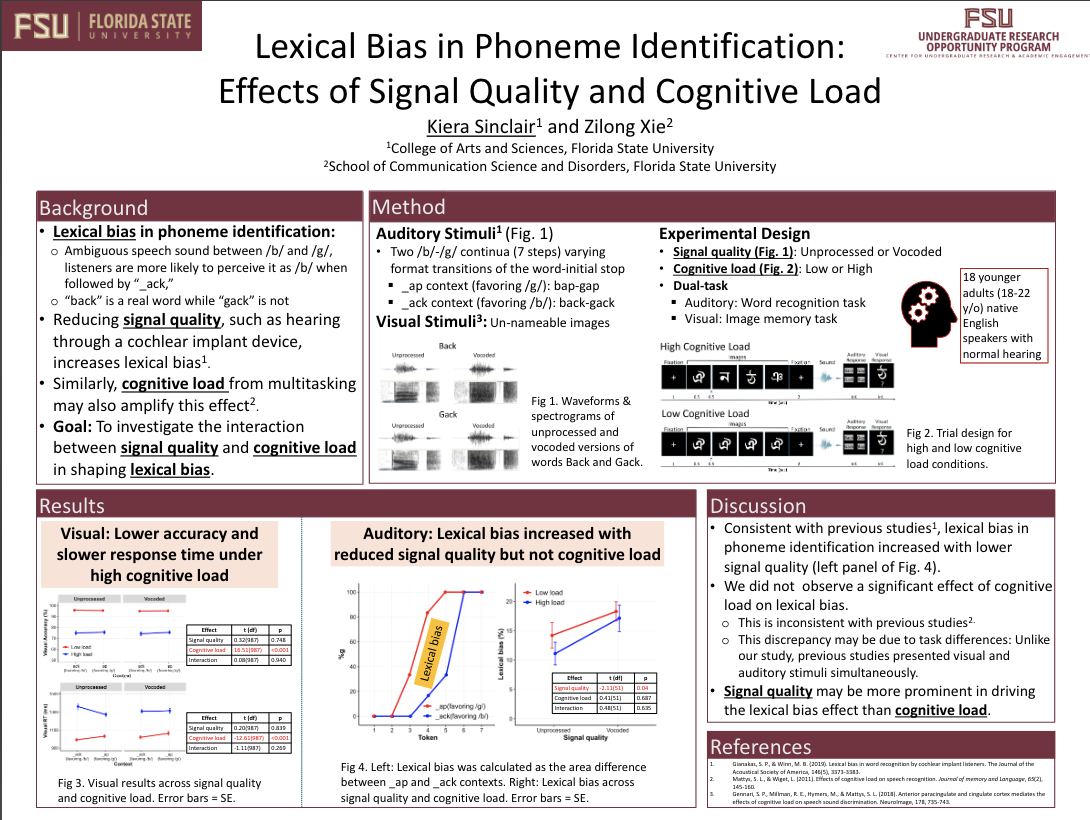Research Symposium
25th annual Undergraduate Research Symposium, April 1, 2025
Kiera Sinclair Poster Session 1: 9:30 am - 10:30 am/ Poster #147

BIO
Kiera is a second year Cellular and Molecular Neuroscience major on a premedical track at Florida State University. She has aspirations of becoming a Neurosurgeon or Cardiothoracic surgeon. She is highly interested in the relationships between nutrition and brain health. She is hailing from Pensacola, Florida.
Lexical Bias in Phoneme Identification: Effects of Signal Quality and Cognitive Load
Authors: Kiera Sinclair, Zilong XieStudent Major: Cellular and Molecular Neuroscience
Mentor: Zilong Xie
Mentor's Department: The School of Communication Science and Disorders Mentor's College: College of Communication and Information Co-Presenters:
Abstract
When presented with an ambiguous speech sound between /b/ and /g/, listeners are more likely to perceive it as /b/ when followed by “_ack,” as “back” is a real word while “gack” is not. This tendency, known as lexical bias in phoneme identification, reflects a preference for real-word interpretations. Research suggests that reducing signal quality, such as hearing through a cochlear implant device, can increase lexical bias. Similarly, cognitive load from multitasking may also amplify this effect. However, the interaction between signal quality and cognitive load in shaping lexical bias remains unclear. To investigate this, young adults with normal hearing (N=18; ages 18–22) completed a phoneme identification task while simultaneously performing an image memory task with either low or high cognitive load. The low-load condition required memorizing four identical images, while the high-load condition involved four different images. In the phoneme identification task, participants classified speech sounds along a /b/–/g/ continuum, presented in the context of “_ack” or “_ap” to manipulate lexical bias. Speech sounds were either unaltered or vocoded to simulate cochlear implant hearing. Results revealed that lexical bias increased with degraded signal quality. However, neither cognitive load nor the interaction between signal quality and cognitive load was statistically significant. These results suggest that signal quality may be more prominent in driving the lexical bias effect than cognitive load.
Keywords: speech perception, lexical bias, signal quality, cognitive load


